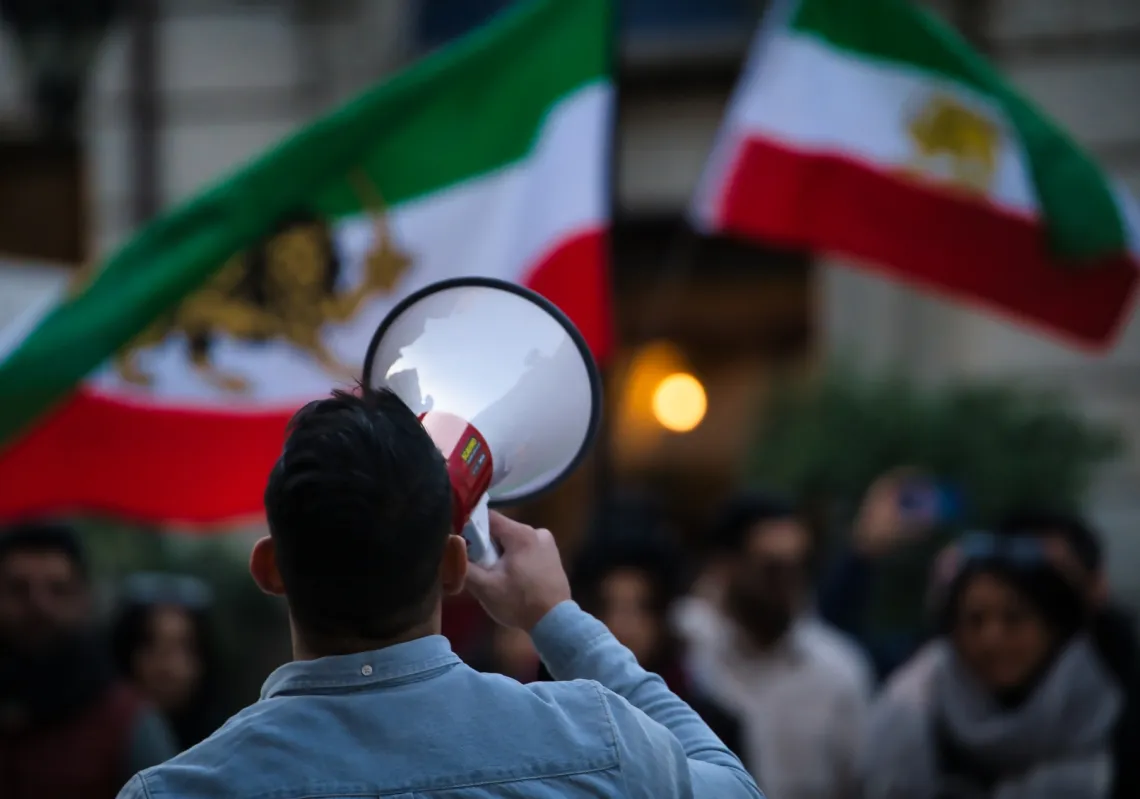With just over a week to go until the nation goes to the polls to determine the future path of the country for generations to come, Majalla sat down with Dogus to discuss some of the key electoral issues.
Why did you get involved with the Labour party in your teens?
I came over as part of a refugee family from Turkish Kurdistan in 1994 and it was Labour members who actually welcomed me and my family and many others who happened to have no choice but to come to the UK at the time. I got involved with Labour politics in 1995 just before their landslide victory and I carried on being involved throughout the years but I officially signed up to become a member in 1999. Since then, I have actively campaigned in every local, national and European election for Labour.
Why did you decide to stand for Parliament?
I have been doing a lot of community work since I arrived in the UK, whether it was after school clubs or sports clubs for young people from different communities. I have seen first hand that you can make a difference to the lives of others by helping people, by being active in the community. I then realised that I could do much more by standing for parliament and being more involved in politics in the UK and so I decided to stand for parliament and the Labour party is the only party that one can stand for when you have beliefs for social justice, when you want to talk about British values of tolerance and helping the underdog.
How will your background as a refugee influence your politics, particularly amidst growing anti-immigrant sentiments?
In Britain, mainly due to Brexit, there has been an increase in anti-immigrant, anti-foreigner sentiment by the right wing media and also the right wing political movements. This is going to cause a lot of problems to immigrant communities that have contributed so much to the British economy, British life and British culture, wherever you look there is a mark made by an immigrant from different parts of the world. I think people are now beginning to talk about this is in a positive way. UKIP and Tory rhetoric is about cutting immigration down, but then they realize that we need people to come in and work and build lives in this country so that we can all benefit from the success stories of every individual no matter their background. They are beginning to talk about the positive contributions immigrants have made to this country. The Labour party has always been supportive of communities, whether they are refugee communities or immigrant communities, they have always been on the side of those who work hard and contribute to their local communities and to the country.
Your constituency have always voted conservative, what are their big issues and what are you offering people to get them to come over to Labour?
The constituency has always been a Conservative safe seat and there are many reasons for that. My constituency represents what is wrong with Britain in a way, on one street you have some of the most expensive houses on earth and on another street you have people sleeping on doorways, crime, drugs and antisocial behavior. You have two different worlds in the same constituency, you have the financial center of Europe – the City of London – as part of, and you have Westminster where poverty is very high in some parts and cuts to schools and the NHS are affecting tens of thousands of people. This constituency has never delivered a Labour MP, one reason is because it has always been a Tory heartland but also because Labour hasn’t done much campaigning here. Although it has only been 3 to 4 weeks, we have been campaigning really well and we believe we have made a difference in terms of reaching out to a lot of new people who used to vote conservative, Lib Dems or Greens and are now considering to vote Labour.
I have 5 key pledges, one of them is air pollution which affects everyone in the constituency. The level of air pollution is huge in this constituency and the government is breaking European laws by not doing anything about it. I am standing against cuts to schools, cuts to the NHS and the housing crisis. We are offering to build around 1 million houses within 5 years, half of them will be social housing where people can have a decent place to live in. We want to campaign against crime and anti-social behavior. These are the key issues but on top of that, I am promising the constituents that I will have a fully staffed, fully functioning office and hold regular surgeries on a weekly basis where people can come in whenever they want and talk to us about their issues and concerns and we will try to help them.
There was an unprecedented five Labour Councilors elected to the City of London Corporation’s Common Council recently, why do you think people are now recognizing the appeal of the Labour party locally?
I think it is more about Labour’s activity base. Labour has begun to engage with people. Our local activists were not engaging with the communities on the ground in the past, now they are. Through engaging with people, knocking on their doors, and sharing their concerns and trying to find answers to the problems they are facing, they have managed to bring people out to vote for them and we now we have councilors in the City of London, we have councilors in Westminister, but this is not enough. There is a long way to go and we are doing all we can to make sure Labour is elected for the first time ever – we want to make history here.
The Remain voter, particularly those in the City of London - an international financial center - is concerned with the uncertainty that leaving the European Union will bring for jobs and business. You have pledged to go after the most advantageous deal on Brexit if successful. What would that look like?
I voted remain, the majority of the Labour party members supported remain, we lost the vote, we accept the result and now we are in the process of leaving the European Union which will take a few years. The key outcome of leaving the European Union should be the protection of jobs, the economy, the environment and basic human rights. Britain is seen to be the cradle of democracy and if we are going to start diminishing the basic human rights and basic job protections granted through EU membership then that is not going to be a good deal. The priority for us would be to protect jobs, protect the economy and make sure that the basic rights that we have been enjoying so far are still there for us to enjoy.
You have said that the Conservative Party has consistently proven through its policies that it “cares little for helping small businesses over massive corporations.” However, the Labour Party is perceived by some people as anti-business, what would you say to them?
That is very wrong. The Labour party has always been on the side of business. Social justice comes with growth in economy. If we do not have a functioning economy and growth within the economy, we won’t be able to tackle those issues that we want to address, such as investing in schools, hospitals, making sure that people have a decent home to live in, a decent job, decent transport and so on. All of this is based on having a growing economy within this country and a growing economy will come from growing successful businesses. The key difference between Labour and the Tories is that the Labour party wants big corporations like Google and Amazon to pay their fair share of taxes into the treasury so that those taxes and contributions can be used to fund public services. These public services are benefitting those who are working within those big companies too. Again, the national right wing media is always trying to portray the Labour party as the party that is unhappy with business. It’s not true. Labour is the party of business.
Young people have registered to vote in force which many see as a boost for the Labour Party. Why do the policies of the Labour party resonate more with young people? How does Labour plan to invest in young people?
One of the main reasons young people don’t engaging with politics is that they have seen so far that there is no difference. All the political parties are coming out with their manifestos but none of them had something good to offer young people. Labour for the first time came out and said that there is huge potential with the young people in this country, they have a lot of issues, concerns and problems, and the Labour government will be on their side. One of the ways we will do this is tuition fees. Because of tuition fees, a lot of young people are deciding not to go to university, and by not attending University they are not able to fulfil their potential. Labour is saying we will get rid of tuition fees, we will make sure that young people are able to go to University if they want to. When it comes to education maintenance allowance, a young person in college used to be given £30 per week to pay for travel or spend on something they want, they could feel that the government was supporting them to study. The Tory government got rid of that, the Labour government is going to reintroduce it.
When it comes to primary schools, free lunches seems to be a big case for the Conservative party. They want to scrap free lunches for every primary school kid. They want to introduce breakfasts. It is not fair, young people need help as much the older generation. A Labour government will be there for everybody, not just for those who can vote. This seems to be the trick by the Tories, they come out with the policies that help those who are likely to vote and they don’t care about anybody else.
As someone who got involved with politics at a young age, what would you say to the many young people who are apathetic towards politics?
The key is that we must believe that we can make a difference, and we can really make a difference in politics. It’s all about numbers, if we have enough numbers we can change something locally, we can make changes nationally. You need to engage, make sure you are on the electoral role, turn up at the ballot box- just cast your vote. If we got as many young people as we get older people voting it will make a real difference in the way all political parties start thinking. Engaging in politics does make a difference and every single person in this country has the power and potential to make a real difference in their own lives and the lives of others, so get involved!

The Manchester attack has brought security issues into greater focus ahead of the general election. The Conservatives have accused Labour of being weak on security and defense. What will Labour do to keep our communities safe?
Labour is as strong, if not stronger that the Tory party on defense. These terrorist attacks are taking place under a Tory government. Labour has a better security plan. The main difference between Labour and Tory security policies is that Labour wants to tackle the root causes of terrorism as well. For the Tories, it’s the war on terror and it’s a war in a different country, but it is happening here, people are getting killed in Manchester and in London. We want to tackle the root causes of terrorism. Why are these young people disenfranchised in the British way of life and engaging in terrorist activity? Labour will address these key issues. We are known to be credible when it comes to the country’s security. It is important to give the Labour party a good chance to govern this country.
Jeremy Corbyn said that there was a link between “wars our government has supported or fought in other countries and terrorism here at home”, and that the war on terrorism “is simply not working”. Why do you think his remarks caused such a controversy?
Jeremy made it very clear that the blame is with the terrorists, it is them who are committing terrorism against innocent vulnerable people but British foreign policy and other countries’ foreign policy has something to do with the problems. These terrorist organizations and their sympathizers are getting trained in Libya or in Syria and they are coming back to Britain to attack us and our way of life. That is a danger. Labour’s solution to this is simple. We need to keep an eye open, we need to make sure that the people who are involved in radical Islamist or terrorist activity, who leave the UK to fight in Libya, are actually known to the security services.
How do you view the relationship between politicians and the media, particularly in the current political climate?
Some sections of British media have not been fair to the opposition, especially to the leader of the party, namely The Daily Mail, The Sun, The Express and so on. I think there is always a difficult relationship between the media and politics, the media wants to set the agenda and the politicians want to do the same but as long as the media is fair towards the political parties and political leaders I think the relationship will be good to carry on.
Has Labour reconciled the divides that festered in the party during last year’s leadership elections?
All political parties have divisions. The Tory party is the most divided party on earth, you cannot find two Tories agreeing on something, but right now during the elections all the political parties are united. There are different political forces within the Labour party, there are people who don’t want Jeremy Corbyn to be the leader just as there were people who didn’t want Ed Miliband to be the leader. Right now every single member of the Labour party has united behind Jeremy Corbyn because he is the elected leader of the labour party and we are all fighting very hard together to make him the Prime Minister of Britain. The divisions within the Labour party are quite normal, we just need make sure that when it comes to national issues and when it comes to the interests of the people of the country, we are able to come together to make life better for everybody.
What do you think of Teresa May’s “U-turn” on social care and how do you think this will impact the elections?
This is not the first time Teresa May has made a U-turn, she has consistently said that she would not call an early election and we found out that that wasn’t true. When she realized that she was 20 points ahead of Labour she called for an early election. When she came out with her manifesto, many people were unhappy with the social care plan as well as many other plans and began to desert her party and came over Labour. She now feels like she is in trouble. 20 points came down to 6 points now and there is only 10 days to go, we have a chance to transform the country.
With only 10 days to go, what is the feeling on the doorstep?
People are excited to see that the underdog of this election has actually managed to come up on top. We can now get on with the real fight against the Tory party and their policies which are not good for the majority of the people in this country. We were out campaigning today in a street market in City of London, it was amazing. People are very excited that there is a chance for Labour to reform to government.









